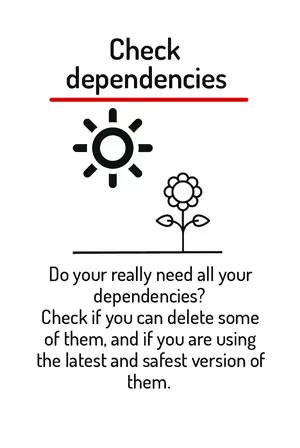Check dependencies

Dependencies are powerful, but every single one comes with cost: more code to maintain, possible security issues, and slower builds. Over time, projects collect libraries that nobody remembers why they exist. This creates hidden risks and unnecessary complexity.
Before adding a dependency, ask yourself: Can I solve this with standard Java or an existing library I already use? For example, Java already provides good collections, date handling, and HTTP clients. You don’t need a third-party library for everything.
Bad habit:
<dependency>
<groupId>commons-lang</groupId>
<artifactId>commons-lang</artifactId>
<version>2.6</version>
</dependency>Often this was added years ago just for something like StringUtils.isEmpty(). In modern Java, you can replace it with str == null || str.isBlank() and drop the whole library.
Good habit:
-
Review your
pom.xmlorbuild.gradleregularly. -
Remove libraries that are unused or duplicated.
-
Upgrade to the latest stable and secure versions.
-
Prefer well-maintained and widely adopted libraries over obscure ones.
Each time you commit, ask: Did I just add or update a dependency? Do I really need it? Is it safe and current? Keeping your dependency list lean makes your system lighter, safer, and easier to maintain.